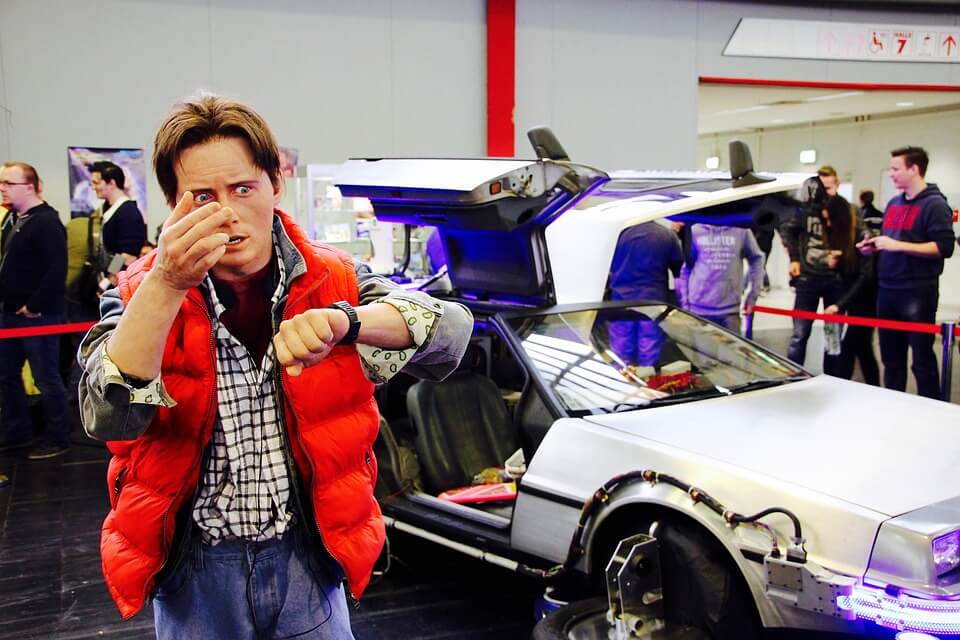May 29, 2019
How technology hinders productivity

In Back to the Future II, Marty McFly soars to the future date of 21st October 2015. It’s an iconic scene, and a bizarre one to watch back in the present day. We know now that this 80s vision for the future is fairly inaccurate; we have no streets filled with flying cars or self-tying trainers. However, what they couldn’t possibly foresee back then is the way technology has exploded, and not in the sci-fi sense of holograms and hoverboards, but in the power and duplicity of our devices.
The smartphones we carry around in our pockets have more computing power than the NASA technology that sent man to the moon. If we told Marty McFly of all the tech we have today, we’d be sure to elicit more than just a “woah doc, that’s heavy!” Our many gadgets have facilitated even more helpful tools in the form of software solutions. From tracking your fitness to storing your most precious memories, there’s an app for everything. With the rise of remote work and so many tools claiming to make things easier, surely we should be at a whole new level of productivity bliss; things should be simple, streamlined and efficient. It likely comes as no surprise to you that this is not the case – that’s why we need to talk about how technology is hindering our productivity in work.
Let me paint the picture of an average day for an office worker. Arriving at work, they log in and check their emails – anything from 5-50 emails are waiting for them from the day before, and so the first half an hour of work is then spent bogged down in their inbox as they plow through requests, check-ins and follow-ups. For many, this likely seems to be a reasonably productive start to the day – but the truth is, it’s not. Emails are dangerous because they create the illusion of being busy, while actually prolonging the already drawn-out process of work communication. Discussions are out of context, the wrong people end up copied in, or left out, and the whole thing is messy and painful. For the average office worker, emails will be flying in and out for the rest of the day.
Next, this employee likely logs into whichever task management tool has been favored by their current company – it might be the heavy-duty project management kind that requires months of use to get to grips with, or maybe it’s more list-like, with a never-ending stream of things to get done. Either way, it’s unlikely that priorities are clear. The day is spent working through these tasks in no particular order. For internal communication, most offices use a “work suitable” instant messenger application. But other than being packaged as office-suited, this is unlikely to be any different to the chat app on Facebook (meaning there’s nothing there to keep the conversation work-specific). Even when that person is focussing on a task, messages keep pinging in from colleagues distracting and diverting them from the task at hand. This is to say, modern technology is fragmented and chaotic. It just doesn’t work.
Let’s put all of this into perspective; on average it takes a person 25 minutes to refocus on a task after being distracted. That’s a worrying stat when technology is so guilty of offering up interruptions. Even when the tools are meant to be there to help you work, if you’re jumping between them that’s still considered to be “context switching” which is famed for having a negative effect when it comes to getting work done. Just the same as multi-tasking, it leads to both lower output and – more importantly – lower quality work.
So, how has this happened? Technology is meant to speed things up for us, not slow them down. The answer really lies in the development of these tools. Most software is designed to fix one specific pain-point; it has an audience in mind and creates something that will fix one thing, for one type of person. As more and more of these single-purpose solutions have cropped up, people have had to resort to shaky, unreliable integrations to duct tape together their various pieces of software. These are tools developed by entirely different companies, yet they’re somehow meant to work together. It’s not surprising that this ends up being ineffective. And that’s not to mention the difficulty that comes with managing work across a variety of platforms – things get lost, misplaced and time is wasted spent looking for things. Over the course of a working month, this time lost can reach staggering heights.
The “go, go, go” nature of the modern world places no value on taking time to stop and think. Time spent slowing down, reflecting and daydreaming, is as crucial to good work as actually sitting and getting the work done. With our digital calendars synced across devices, people often view empty slots as time that must to be filled – very few see this precious time as room for working through a problem or being creative. In this sense, technology has promoted a continual stream of reactive thinking, where we respond to the world around us without taking time to see if the course we’re taking is the right one.
Technology outside of the workplace is also a big culprit. With our dwindling attention spans and the constant draw of social media, most people find zoning in and shutting out the social sphere harder than ever before. Especially when the digital realm keeps everything in such close proximity – instantly available with just a few clicks of a button. While there is no quick-fix for breaking our smartphone addiction, we can – at least – improve the technology we use in the workspace. If we address the key elements hindering productivity, i.e. the fragmented nature of the software we use, we can rethink how we approach the question of productivity (so we make sure we’re doing the right tasks, rather than just any tasks) and look to keep our work as centralized and intuitive as possible. So things can change for the better and we can truly get technology to work in our favor.
Ayoa has everything you need, in just one place. Stop jumping between apps, and actually get stuff done by signing up for free today.

